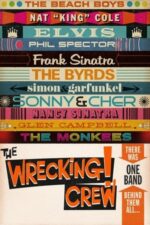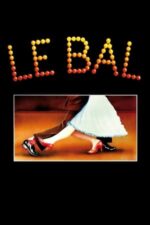More Than Just a Beat: Exploring Rock 'n' Roll on Film
Okay, let’s talk about rock ‘n’ roll. Not just the music – though that is undeniably incredible – but how cinema has grappled with its energy, its mythology, and sometimes, its dark side. It's fascinating to see how filmmakers have tried to capture something so visceral, so rebellious, on screen. Because let's be honest, trying to bottle lightning isn’t easy!
We often think of rock 'n' roll as pure rebellion – Chuck Berry duck-walking across the stage, Elvis shaking his hips, The Ramones spitting out anthems of teenage angst. And I Ramones, that concert film from Rome, absolutely delivers on that raw energy. Seeing those guys thrash around in 1980, fresh off their Spector-produced album? It’s a blast of pure adrenaline – the kind of thing you wish you could have experienced live. It's a reminder that sometimes, the most powerful moments are the simplest: just a band and an audience connecting through music.
But rock 'n' roll isn't always about youthful exuberance. The films we’ve got here show us different facets of this sprawling genre. "Murder Ballads," for example – or “Stack of Corpses” as it's known – is a brutal look at the desperation that can fuel ambition in the music industry. It’s a cautionary tale, really, about how far people will go to chase fame and fortune, and the devastating consequences when those choices lead down a dark path. It reminds me a little of Almost Famous, but with significantly more grit and less romanticism.
Then there's "Behind the Paint: The Story of Slaughtered Goat." Documentaries like this are vital because they remind us that even the most outrageous, seemingly chaotic acts have complex stories behind them – struggles, triumphs, and often, a whole lot of dysfunction. It’s a peek behind the curtain, showing you the human cost of pursuing artistic vision, no matter how extreme.
And it's not just about the big names or the scandals. "Rockpile: Live at Rockpalast" is a beautiful example of capturing a band in its prime – showcasing incredible musicianship and that undeniable chemistry between performers. It’s a reminder that rock 'n' roll isn’t always about stadium-sized spectacle; sometimes it’s about tight arrangements, killer grooves, and the joy of playing together. I love these kinds of concert films because they feel like you're there, sharing in the moment with the band and the audience.
Finally, "Public Telephone" offers a fascinating glimpse into the French rock scene – proving that the spirit of rebellion and innovation isn’t confined to any one country or culture.
So, what does all this tell us? Rock 'n' roll on film is more than just music videos stretched out; it’s a lens through which we can examine ambition, fame, creativity, and the human condition itself. It’s about capturing a feeling – that rebellious spark, that raw energy, that sense of community – and translating it into something visual. And whether you're looking for a wild ride or a thoughtful reflection, there's a rock 'n' roll film out there waiting to be discovered.







































